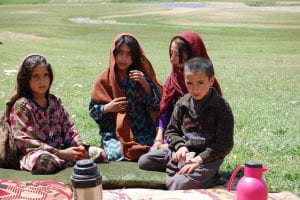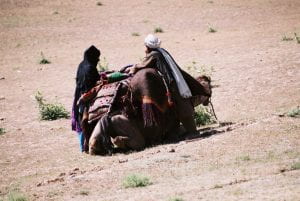Workshop Dates: March 22 and 24, 2022
WORKSHOP & OBJECTIVES
Six prominent scholars have agreed to write and present white papers, and an additional six scholars will serve as discussants who provide written comments on those papers. The white papers will be presented in public sessions from 11:25 AM-12:40 PM on both March 22 and 24. These public sessions will be immediately followed by “private” sessions to allow more complete discussion and relationship-building among the presenters, discussants, and invited participants. The workshop is aimed to begin answering the questions noted below, to help develop a research agenda, to build our network, and help us prepare to apply for funding that can grow our work in this area.
Ultimately, we aim to develop a research agenda and collaborative network that can advance scholarship and policy in two major ways.
- First, we aim to develop a socio-environmental conception of positive peace—which entails not only the absence of violence, but also the presence of means for peacefully resolving conflict, and which centers Indigenous perspectives and environmental justice—and to chart a course towards its implementation.
- Second, we aim to examine regions that remain poorly understood due to sampling biases (the “searchlight effect”), but which are nonetheless characterized by significant migration flows and vulnerability to climate change. In particular, South and Central Asia, Southeast Asia, and Latin America, are all among the most impacted by climate change, significant migration, and high potential for conflict but have been the subject of limited or narrowly construed studies.
For more information, please visit the website : Cornell University Mario Einaudi Centre for International Studies.
AGENDA
Tuesday, March 22: Conceptualizing Environmental Peacebuilding
What do we know about the relationship between peacebuilding, migration, and climate change? How can we develop a socio-environmental conception of positive peace, which entails developing means of peacefully resolving conflict, and which centers Indigenous perspectives and environmental justice?
11:25 AM-12:40 PM Public Presentations and Discussion
Introduction by Rebecca Slayton Rachel Riedl
Presenters
- Päivi Lujala https://www.oulu.fi/university/researcher/paivi-lujala
- Marieme Lo https://www.schoolofcities.utoronto.ca/people/directories/all-faculty/marieme-lo
- Noor Ahmad Akhundzadah, Dean and Professor of Environmental Science, University of Kabul, Afghanistan. Currently Visiting Professor, Department of Natural Resources and the Environment & the South Asia Program, Cornell University
12:45 PM-2:00 PM Discussion among Invited Participants
Discussants
- Carl Bruch https://www.eli.org/bios/carl-bruch
- Richard Matthew https://www.faculty.uci.edu/profile.cfm?faculty_id=4770&name=Richard++Matthew
- Shanna N. McClain http://appliedsciences.nasa.gov/about/our-team/shanna-mcclain
Thursday, March 24: Expanding the Lens
The regions that are at greatest risk of climate change impacts—including Latin America, Southeast Asia, and South Asia—have been the subject of a minority of studies. What resources, methods, and approaches can help us better understand the relationship between peacebuilding, climate change, and migration in these understudied regions? How can we achieve environmental justice in these areas?
11:25 AM-12:40 PM Public Presentations and Discussion
Introductory reflection by George Wilkes and Karim-Aly Kassam
Presenters
- Alpa Shah https://www.lse.ac.uk/anthropology/people/alpa-shah
- Jonathan Padwe https://anthropology.manoa.hawaii.edu/jonathan-padwe/
- Fábio Zuker https://rainforestjournalismfund.org/people/fabio-zuker
12:45 PM-2:00 PM Discussion among Invited Participants
Discussants
- Jason Kons https://liberalarts.utexas.edu/anthropology/faculty/jc73759
- Darley Jose Kjosavik https://www.nmbu.no/emp/Darley.Kjosavik
- Cynthia Brady https://www.wilsoncenter.org/person/cynthia-brady

